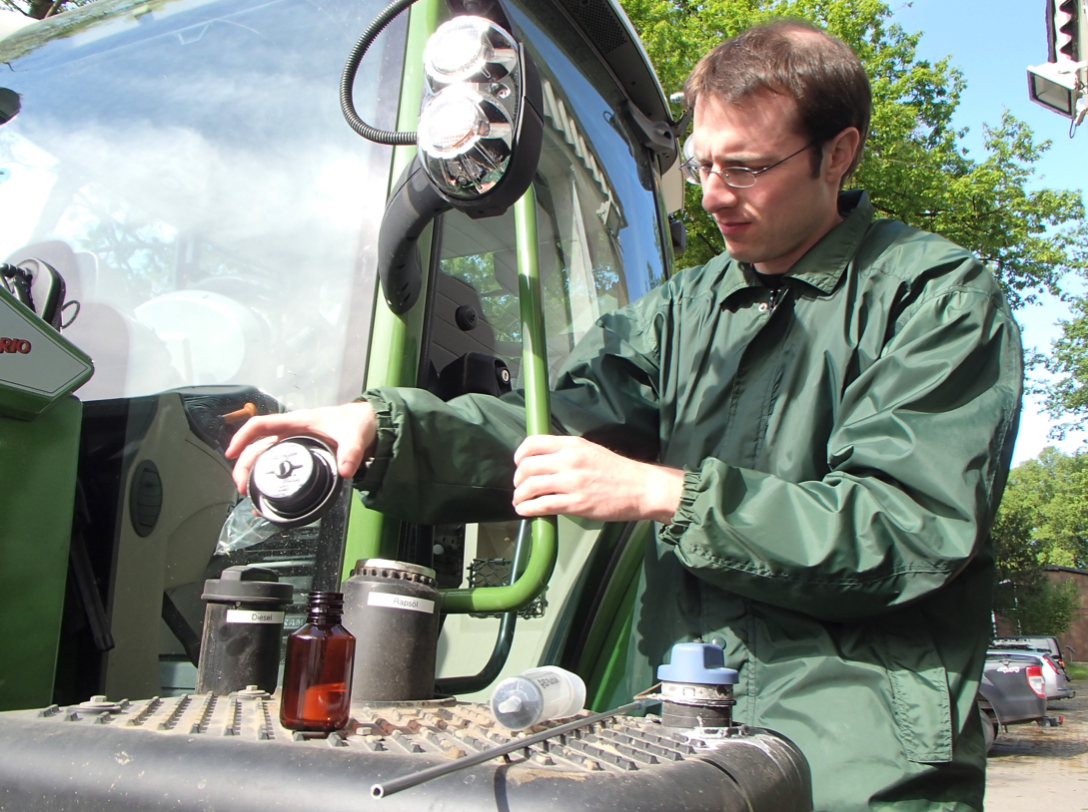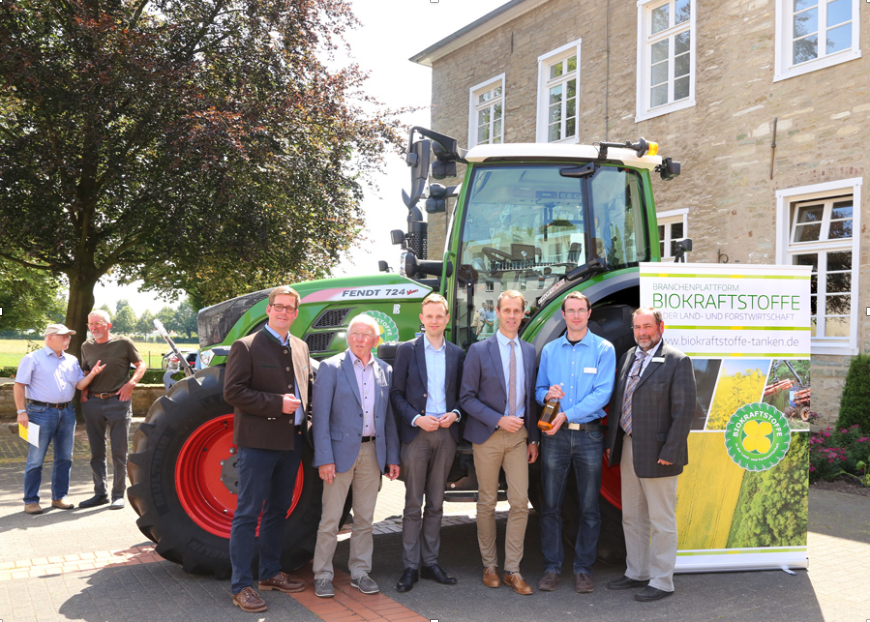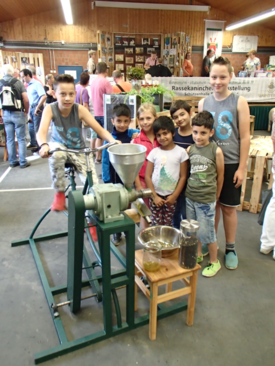
Experimental and Education Center Agriculture Haus Düsse
| Position | Bad Sassendorf, North Rhine-Westphalia |
| Utilized products | Rapeseed oil fuel, fodder oil |
| Origin of rapeseed oil fuel | Oilmill C. Thywissen GmbH, 132 km away |
| Webpage | www.duesse.de |
"The on-site operation of the plant oil tractor under practical conditions and the associated monitoring will enable us to furnish interested farmers with comprehensive advice on the use of such tractors on their own farms. This is an important step towards the holistic implementation of regionally closed energy and material cycles in the agriculture. The aim is a sustainable, efficient use of our domestic resources and the development of a more sustainable way of farming."
Michael Dickeduisberg, Department of Agriculture and Crop Production, Center for Renewable Resources NRW
The moated castle built in 1655 by Adrian van der Düssen is anything but old-fashioned. The experimental and educational center of the North Rhine-Westphalia (NRW) Chamber of Agriculture is located on the picturesque grounds. In addition to public relations, training and further education in the areas of agriculture and home economics as well as for skilled personnel in gardening and agriculture, the Haus Düsse is also known for its diverse experimental and examination tasks. From feeding and breeding trials to performance tests of ruminants, fattening pigs, laying hens and fattening poultry, as well as land variety and arable farming trials (which also include cultivation and variety of rape).
In 1998, the Centre for Renewable Resources (ZNR), which serves the whole of NRW, was established at Haus Düsse. Since 2006, visitors to the in-house energy exhibition have been able to learn about the various forms and uses of renewable energy. The exhibition was extensively updated in 2015 to reflect the new circumstances and concepts of the industry. The portfolio covers wide areas of sustainable energy management, from energy saving possibilities to the use of solar, water and wind energy, pellet and wood chip heating systems, various biogas systems, the use of rapeseed oil fuel and the organization of farm petrol stations.
Since spring 2019, the ZNR has been demonstrating a sustainable land management option with a Fendt 724 Vario Plus which had been converted to run on vegetable oil. (The start had been planned a year earlier, but slight technical problems at the beginning prevented the commissioning). The focus of the operation is on soil cultivation measures such as cultivating, ploughing and sowing on the 300 in-house hectares of the Haus Düsse Experimental Centre.
The tractor complies with the latest emission standards and has a two-tank system, meaning that it is started with conventional diesel fuel and switches over to vegetable oil operation as soon as the necessary operating temperature is reached. Practical experience so far has been positive, and the staff also didn’t show problems to adapt to the new technology and habit changes. Most important and gratifying, though, is the realization: the engine runs perfectly.
A detailed documentation of the fuel consumption, the performance profiles and the maintenance and repair works is expected to be accomplished and evaluated in the winter of 2019/20. This will provide interested farmers with accurate information and recommendations on the use of sustainably produced rapeseed oil fuel according to DIN standards. Here, thanks to the support of the industry platform for biofuels in agriculture and forestry and its cooperation partners, the Haus Düsse team is doing additional work that often cannot be done in conventional farms: a practice-relevant, professional data collection that supplements the personal experience and knowledge of practicing farmers with the help of concrete data and information.
The experiences and results are presented at supra-regional events and published in media ranging from the agricultural trade press to the daily newspaper. The public relations work is supplemented by the annual NRW Biofuels Conference at Haus Düsse. It offers a broad spectrum of topics and is always a welcome event for representatives of the industry and all interested parties to inform themselves about the latest technical developments and legal framework conditions and to exchange ideas.
Thus, the agricultural research institute not only demonstrates how the use of biofuels can be achieved in practice, but also acts as an important multiplier for the use of alternative fuels in agriculture and forestry.


Haus Düsse is known for its wide range of experimental and testing tasks.
The rapeseed bike is a visitor magnet at major events such as the annual Düsseldorf farmers' market with over 12,000 guests. With muscle power, rapeseed is playfully pressed into oil and "incidentally" an animal feed is produced.
Experimental and Education Center Agriculture Haus Düsse
Ostinghausen
D-59505 Bad Sassendorf
Photo credits: Versuch- und Bildungszentrum Landwirtschaft Haus Düsse
